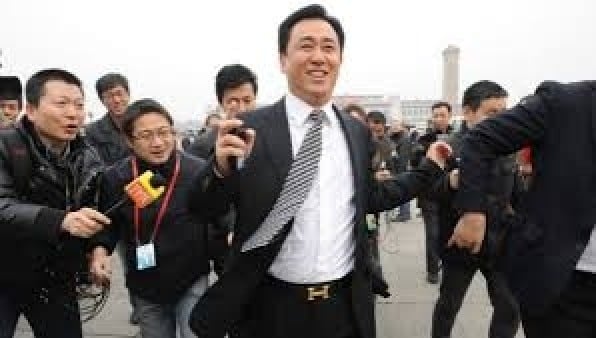
Evergrande’s Hui Ka-yan orders executives to speed up construction, step up marketing, as shared voice clip debunks suicide rumour
- In a move that seemed designed to put rumours of his death to bed, Hui also chaired a meeting with company executives on Friday night, according to Evergrande’s website
- China Evergrande Group has the dubious honour of being the world’s most indebted developer, with US$300 billion in liabilities as of 2019
Hui, also known as Xu Jiayin in mainland China, spoke in a voice clip that was shared on China’s ubiquitous WeChat social network. The clip was verified by a source at the company. Evergrande’s spokespeople in Guangzhou declined to comment.
The clip, bearing the time stamp of 1:33pm on Friday, began circulating just as a rumour began circulating that Hui had jumped off a building in the Hunan provincial capital of Changsha. Sources close to the company said the rumour was groundless, and that Hui was still meting out instructions to his senior executives to maintain the pace of the construction of his unfinished projects.
Then, in a move that seemed designed to put rumours of his death to bed, Hui chaired a meeting with company executives in southern Guangzhou on Friday night, according to a post on Evergrande’s official website.
The Chinese tycoon was shown in two pictures and a video clip talking to senior staff at the Guangzhou Evergrande Centre in the post on December 2. He was seen reiterating his demand that sales efforts be intensified.
“We have delivered 256,000 units between January and November, approaching our targeted 300,000 units in 2022,” Hui said in the Friday night clip.
“We only have 29 days left in 2022, and everyone with Evergrande should be fully committed to our responsibility and never give up to make sure we meet our target.”

Hui, who was born in a village of fewer than 50,000 residents in central China’s Henan province, founded Evergrande in 1996 in Guangzhou, where he went about building high-rise apartments and selling them to buyers in a private housing market that was barely 10 years old.
In the late 1990s before China joined the World Trade Organization (WTO), the property industry was dominated by large state-owned developers with the capital and access to the best locations. Apartments were large, and priced beyond the affordability of all but the wealthiest buyers.
Hui focused instead on building affordable homes for the mass market, delving deep into his own memory as a village kid dreaming of city life. He borrowed to build at low costs, selling his apartments off-plan, and using the high turnover to generate cash flow to fund his growth.
Is Evergrande too big to fail?
By 2020 when the first case of the Covid-19 disease was reported in China, Evergrande had moved its head office to the technology metropolis of Shenzhen, the hometown of Huawei Technologies, Tencent Holdings and DJI.
From real estate, Evergrande quickly expanded into a wide range of investments from healthcare to bottled water and the capital-intensive business of assembling electric cars, even owning a football team.

Combined with slumping sales brought about by the government’s misguided obsession with snuffing out asset bubbles, the real estate market went into a death spiral, driving many developers to miss payments on bonds, notes and loans.
Still, production at China Evergrande New Energy Vehicle Group has since been suspended due to a lack of orders, Reuters reported on Friday, citing two people with knowledge of the matter.
The unit may have to lay off 10 per cent of its staff and would suspend salary payments to 25 per cent of its workers for one to three months, Reuters said. Spokespeople at the Evergrande EV unit could not be reached to comment.


